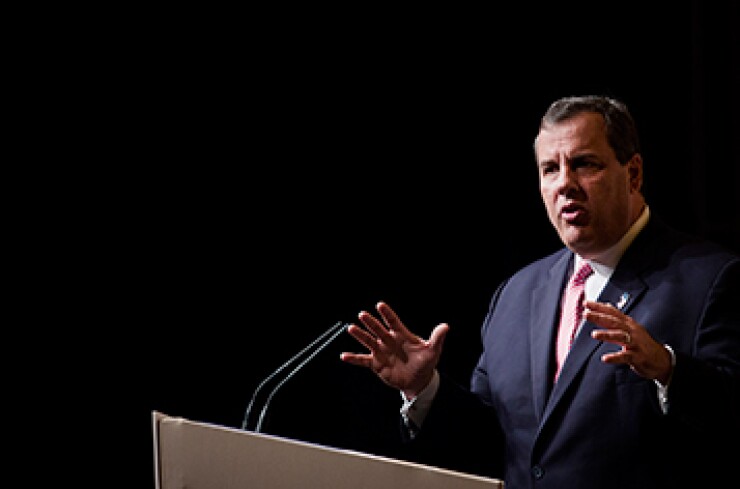
The offsetting tax cuts New Jersey lawmakers accepted to get Gov. Chris Christie to accept a gas tax increase for transportation are credit negative for state finances, according to Moody's Investors Service.
While the gas tax hike will raise roughly $1.2 billion a year for the state's Transportation Trust Fund the tax cuts in the legislative package will result in a net loss to the general fund of around $1 billion by 2021, Moody's analyst Baye Larsen wrote in a report issued Monday.
The legislation, which is headed to Christie's desk, cuts the sales tax to 6.625% from 7% and phases out the estate tax over the next 15 months. The combined revenue reductions under the proposal will number around $164 million for fiscal 2017 and grow to an estimated $1.4 billion by 2021, according to state officials.
"Although the renewed capital investment will benefit the state's infrastructure and economy, the net effect of the revenue package is credit negative because it will strain the state's operating budget amid rapidly rising pension contributions and below-average revenue growth," said Larsen in her report. "The annual revenue loss in future years will worsen the state's budget challenges."
Moody's rates New Jersey bonds at A2 due largely to pension underfunding and below-average revenue growth
New Jersey's revenue losses will be partially offset by a likely return to the general fund of $350 million of sales taxes currently earmarked for debt service on transportation-related projects. Larsen noted that the state expects to record a record estate tax net gain of $120 million in 2017, which will help make up for an estimated $300 million revenue loss in 2018. However, a $1 billion net annual loss in future years, which is equivalent to 2.9% of current revenues, will worsen the state's existing budget challenges, according to Larsen.
The new gas tax revenues will support $16 billion in transportation-related capital projects in the next eight years, which Larsen said provides "significant improvements to the state's burdened infrastructure." She noted however that with the state planning to borrow against the new tax revenues, its debt load and fixed costs will jump.





